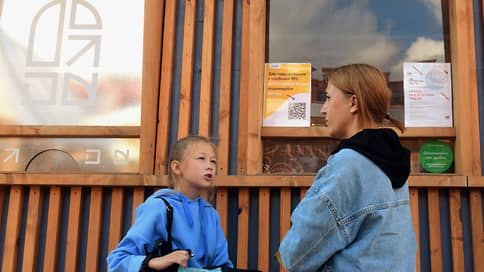No time for spectacles – Newspaper Kommersant No. 176 (7377) of 09/23/2022
[ad_1]

Ticket services report a drop in sales after the announcement of partial mobilization in Russia: on September 21, the decline was 30-40%. The situation can be compared to the end of February, when hostilities began in Ukraine, market participants say, although there is no such clear wave of returns as then. Experts expect a further decrease in the depth of ticket sales, which already fell during the pandemic: viewers are less likely to buy tickets for events in advance, which affects the stability of the organizers’ business.
At the MTS ticket windows (MTS Live and Ticketland) on September 21, ticket sales for events fell by almost 30% compared to September 20 or with average sales on Wednesdays, Kommersant was told in MTS Entertainment (MTS structure). “According to our estimates, for the month the drop should not exceed 10%, if we compare the sales forecast until the end of the month, taking into account the fall on September 21, with the standard sales forecast for this year,” the company said.
The situation can be compared to the end of February, when at the moment sales fell by more than 50% in one day, they say in MTS Entertainment: “In the spring, the recovery took more than three months, but comparing the level of decline and consumer patterns, we can assume that now the market will recover by the end of September – beginning of October, if there are no other shocks.”
Other market participants confirm the data of MTS Entertainment. The total sales of TicketsCloud sank by 30% yesterday, the Concert Industry channel reported, citing Yegor Yegerev, the general director of the service (he did not respond to Kommersant’s request). Producer of the Colisium International Music Forum Sergey Babich speaks about a 30-40% decline in the market as a whole: “It affected all types of events and tickets. We predict that within one to two weeks the fall will be 40-50%, but the market will recover by mid-October.”
At the same time, there is still no wave of returns similar to the one in February, Mr. Babich clarifies: “There is data on piece, single returns, but colleagues do not associate them with events in the country.” Yandex.Afisha, Kassir.ru, Radario declined to comment.
“Such events” directly affect the psychological state of the audience, explains the public ombudsman in the field of organizing cultural events Olga Shpigalskikh: “Everyone is cautious when purchasing this or that ticket, the viewer does not yet understand in general whether he will be able to go to entertainment events. This is not destructive to the market and does not paralyze it, but creates additional obstacles and conditions for stagnation.” In her opinion, there is no avalanche of ticket returns now, because “the news about the mobilization was more expected” in contrast to the outbreak of hostilities in February.
The situation may provoke a reduction in the depth of sales in the market, Olga Shpigalskikh predicts: “During the pandemic, we have already adapted to the fact that tickets are conditionally bought two weeks before the event. Now they will be purchased, apparently, even closer to the date. Because of this, the market becomes less stable, since all payments by the organizers of the events are made in advance – fees, purchase of air tickets for artists, rental fees for venues and advertising spaces.
Obviously, in the current situation, the drop will not be as significant as in the spring, and the market will recover dynamically, Yevgeny Safronov, editor-in-chief of IA InterMedia, is sure: “This, among other things, will be affected by sales at New Year’s events, which viewers have missed a lot in two years.”
The expert notes that the market also faced a general decrease in the number of events. As Kommersant wrote on September 2, since the beginning of the year, against the backdrop of the cancellation of tours by foreign artists, ticket sales for concerts in Russia have more than halved compared to pre-pandemic 2019, up to 30% of Russian artists also left the country or stopped performing.
[ad_2]
Source link





